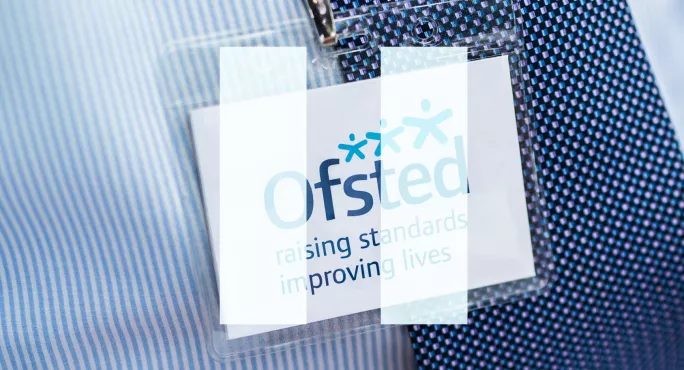Heads call for Ofsted exemption for RAAC schools

Headteachers’ leaders have urged Gillian Keegan to make schools that have suffered disruption because of the presence of reinforced autoclaved aerated concrete (RAAC) exempt from Ofsted inspections until they are “fully operational”.
In a letter to the education secretary the Association of School and College Leaders (ASCL) has also called for more support for leaders of schools impacted by the RAAC crisis.
ASCL warned that the “unacceptable length of time it has taken the government to act” on potentially dangerous RAAC in school buildings has put school leaders in an “extremely difficult position” and is causing “financial detriment”.
The union has also said that students should receive automatic special consideration for coursework and non-exam assessment in cases where their schools and colleges have had to close specialist classrooms
Ofsted said last term that it would not carry out routine inspections at schools confirmed to have RAAC in their buildings.
ASCL today called on the government to “instruct Ofsted to continue to avoid scheduling for inspection any school on the published RAAC list until the school is fully operational”.
- RAAC: School surveys ongoing, DfE admits
- Concrete crisis: 231 schools on confirmed RAAC list
- RAAC in schools: everything you need to know
The letter to Ms Keegan comes after the union called on the chancellor to commit to sufficient funding in the Spring Budget to completely rid schools of the crumbly concrete.
Last month Tes revealed that the Department for Education had yet to complete surveys for schools that required follow-up visits to establish whether RAAC was present.
RAAC schools ‘need more support’
Writing to Ms Keegan today, Geoff Barton, general secretary of ASCL, said the union’s members had highlighted several issues with which they “require more support from government”.
“In the autumn term Ofsted avoided inspecting any education setting that was on the DfE’s published list of education settings affected by RAAC,” Mr Barton wrote. “We ask that you instruct Ofsted to continue to avoid scheduling for inspection any school on the published RAAC list until the school is fully operational, unless the headteacher has notified Ofsted that they are happy to undergo an inspection.
“The unacceptable length of time it has taken the government to act on a risk of this seriousness has led directly to the extremely difficult position in which many school leaders now find themselves.”
Ms Keegan was also asked to create a “long-term plan” for affected schools.
And the letter highlighted that students in RAAC schools had “suffered significant disruption to their learning, including periods of remote learning, and lack of access to classrooms and specialist equipment for several subject areas”.
Mr Barton said that in instances where schools had been forced to close specialist provisions, students in these subjects “should automatically be given special consideration for coursework and non-exam assessment” in any subjects affected.
Experts said last month that exam students at schools impacted by RAAC should have their GCSE and A-level results uplifted by up to 10 per cent.
ASCL also warned of the “financial detriment” experienced by schools impacted by RAAC, which have seen “increasing numbers of in-year pupil transfers to neighbouring schools”.
“The impact of this will have a long tail and manifest in financial detriment at school level for many years,” Mr Barton added.
The union also called on Ms Keegan to ensure that all outstanding RAAC-related spending by schools is reimbursed as soon as possible, “without unnecessary challenge”.
The worst-affected schools had to close fully or partially when RAAC was first identified and some had to implement remote learning at the start of term last September. Many of those have since returned to face-to-face teaching but are using temporary buildings or off-site locations.
The latest DfE figures, published in December last year, revealed that 231 schools had been confirmed as having RAAC in buildings.
The DfE has been approached for comment.
Ofsted published an update today saying that during the spring term a school having the presence of RAAC confirmed will be sufficient grounds to defer an inspection. These schools will be eligible for inspection but will be able to defer if they wish to.
The statement added: “We know that the situation with RAAC is still causing challenges for school staff, pupils and their parents and guardians. For schools that do not have confirmed RAAC but may still be impacted by RAAC - for example, where a school is hosting pupils from schools that have RAAC - we will carefully consider any requests for a deferral of an inspection.
“If we have any concerns, we retain the right to inspect any setting, including those affected by RAAC.”
You need a Tes subscription to read this article
Subscribe now to read this article and get other subscriber-only content:
- Unlimited access to all Tes magazine content
- Exclusive subscriber-only stories
- Award-winning email newsletters
Already a subscriber? Log in
You need a subscription to read this article
Subscribe now to read this article and get other subscriber-only content, including:
- Unlimited access to all Tes magazine content
- Exclusive subscriber-only stories
- Award-winning email newsletters



